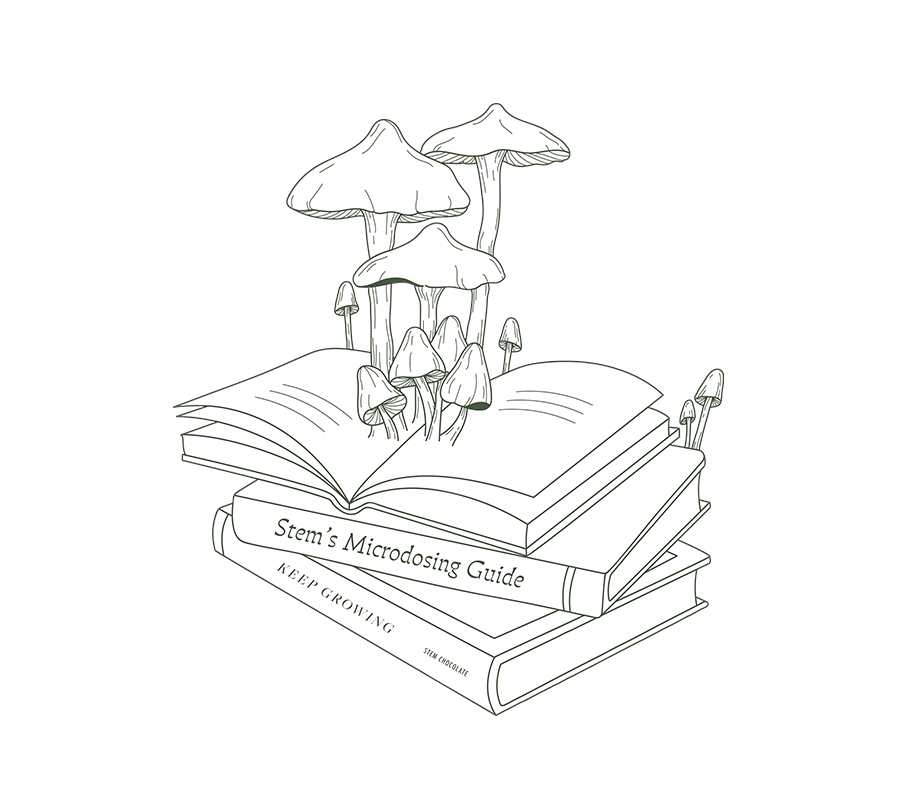Do you think Psilocybin has therapeutic potential to rewire the brain for people with depression? Psilocybin, commonly known as magic mushrooms, have psychoactive and hallucinogenic chemicals, Psilocybin, that can be used to treat anxiety and depression. Psilocybin is the primary psychoactive compound in magic mushrooms.
Magic mushrooms naturally grow in Mexico, the US, South America, and Europe, and the mushrooms can also be cultivated. For thousands of years, people have used magic mushrooms for recreation, spiritual and religious ceremonies because of the psychedelic effect, and therapeutic due to their psychoactive ingredients, leading to the creation of products like magic mushroom chocolates.
So, what are Scientists Saying About Psilocybin for Depression
Studies by John Hopkins Medicine scientists revealed that Psilocybin relieves symptoms of major depressive disorders in adults. The researchers further reported that psilocybin treatment achieves optimum antidepressant effects when augmented with supportive psychotherapy, and the results may last at least a year.
Other studies by UC San Francisco and Imperial College London established that Psilocybin promotes strong connections between different brain parts for people with depression, relieving them from excessive self-focus. Psilocybin therapeutic action involves alleviating depression and other emotional conditions such as anxiety that are contributed by a fixed thinking pattern.
How Psilocybin Works
The psilocybin action involves activating serotonin receptors mainly in the prefrontal cortex part of the brain. The prefrontal cortex is the part of the brain that influences mood, perception, and cognition. Psilocybin is a hallucinogen that also works in other parts of the brain that regulate panic and arousal responses.
Psilocybin does not always initiate visual hallucinations; however, it changes how some individuals who use it perceive objects. It is worth noting that factors such as the quantity of drug a person takes, past experiences, and expectations of the results can determine the overall impact of the effects of Psilocybin.
Half-life and Clearance of Psilocybin
The effects of Psilocybin commonly occur within 30 minutes after consumption. The hallucinogenic effects can last between 4-6 hours, after which their feelings start to fade. Some people have reported changes in thought patterns and sensory perception for a couple of days after taking Psilocybin.
While the medicinal value of Psilocybin continues to be explored, there are several potential therapeutic windows for psilocybin-assisted therapy. Some of the diseases being analyzed include:
- Cannabis addiction/li>
- Anxiety disorders
- Treatment-resistant depression
- Major depressive disorders
- Chronic pain
- Psychopathy
- Borderline Personality Disorder
Access to Psilocybin for Therapeutic Purposes
While access to Psilocybin is restricted in many countries, access and use are allowed to some people for medical reasons. For example, in some states, such as Oregon, people over 21 can purchase Psilocybin from a licensed facility with a certified therapist.
Frequently Asked Questions about Psilocybin
1. Do all mushrooms have Psilocybin?
Mushrooms with Psilocybin are usually small, brown, or tan. You will likely confuse “magic mushrooms” with Psilocybin for other poisonous mushrooms. We suggest that you avoid wild mushrooms if you are inexperienced with Psilocybin.
2. How do you consume Psilocybin?
You can prepare Psilocybin with food items to reduce its unpleasant taste or take it as a brewed tea. Some sellers crush dried Psilocybin into powder and distribute them in the form of a capsule. Some people coat magic mushrooms with chocolate to mask their bitter taste.
3. How widely is Psilocybin used?
In the US, for example, the National Survey on Drug Use reports about 8.5% of the population used or had used Psilocybin at some point. People use Psilocybin for various purposes: recreation, spiritual, and therapeutic experience.
4. What other common names for Psilocybin?
There are several street names for Psilocybin, such as magic mushrooms, mushies, shrooms, simple Simon, and little smoke.
5. Can Psilocybin be abused?
Yes, Psilocybin is quite popular at parties, and sometimes they are disguised as candies. There are reports of increased use of Psilocybin by teenagers and college students because of its hallucinogenic effects. It is challenging to present the exact data on psilocybin abuse because most surveys that quantify drug use exclude Psilocybin.
6. Is Psilocybin illegal?
Because of Psilocybin’s hallucinogenic effects and a high chance of abuse, it is illegal to possess or sell in many countries. In the US, Psilocybin is in the same category as LSD and heroin because of its high potential for abuse. However, there are instances where access and use of Psilocybin are allowed, for example, for treating some health conditions such as mental illness.



